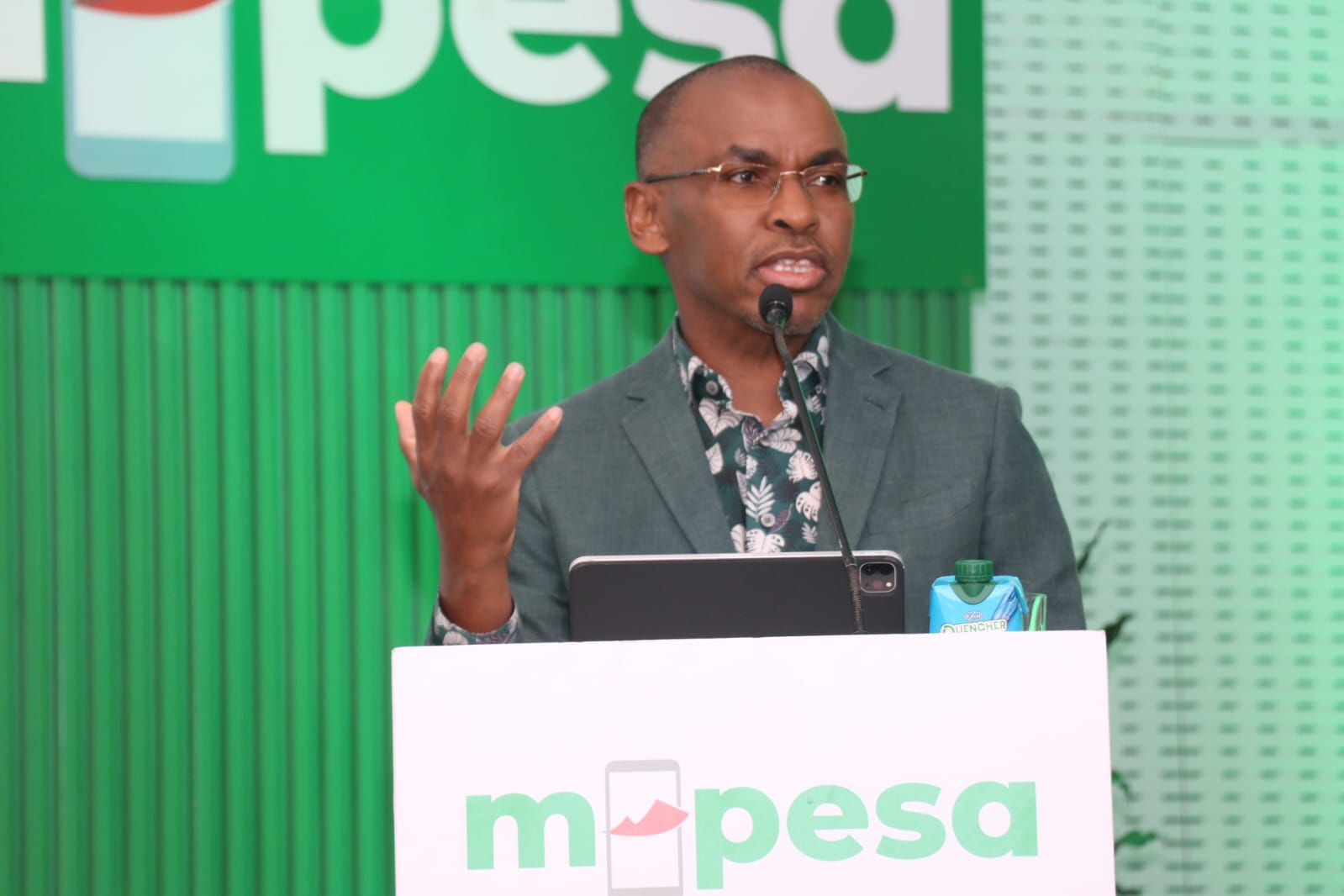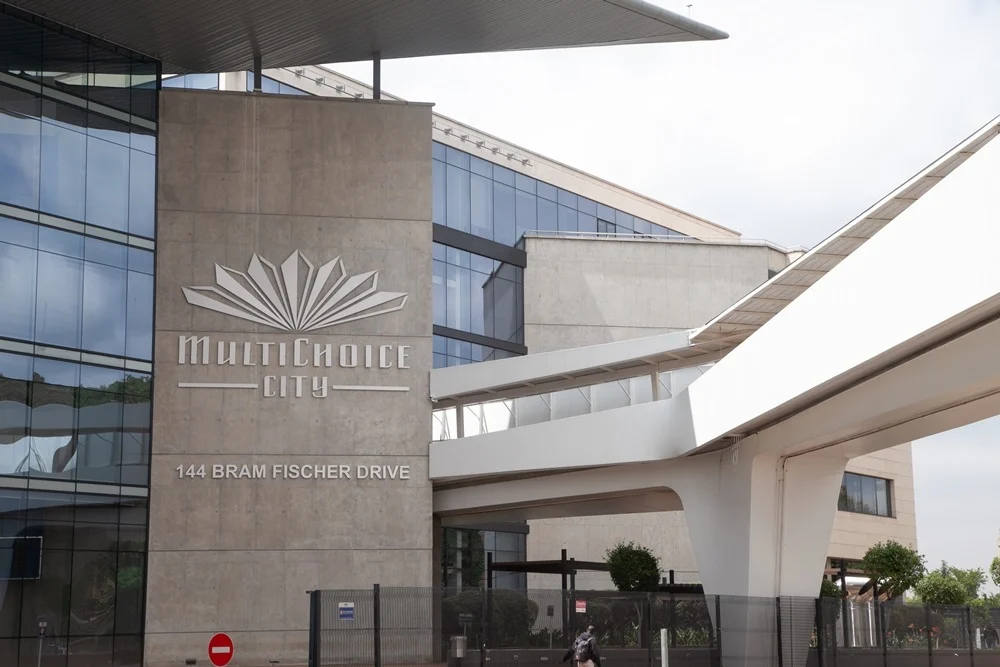- 👨🏿🚀TC Daily
- Posts
- Tax banana
Tax banana
Cool Stuff: Is Terra the face of African hardware tech?


Good morning. ☀️
Okay, somebody needs to stop NVIDIA. After pouring $5 billion into Intel shares last week in a move resembling consolidation to compete with TSMC and AMD, the chipmaker is at it again. On Monday, the four-trillion-dollar company announced plans for a massive data centre buildout with Sam Altman’s OpenAI, investing $100 billion into the startup.
The deal will allow OpenAI to build and deploy at least 10 gigawatts of NVIDIA systems for its artificial intelligence data centres to train and run its next generation of models. Global tech companies are firmly in pursuit of superintelligence, and every player wants a finger in the pie.
Let's get into today's dispatch.

companies
Safaricom completes M-PESA’s biggest upgrade yet

Safaricom, Kenya’s largest telco, has completed the biggest M-PESA upgrade since launching the mobile money platform over a decade ago.
In the early hours of Monday, the telco restored services after a three-hour cutover that shifted its mobile money service to a new cloud-native system named Fintech 2.0
Out with the old. Fintech 2.0 was built to handle Africa’s busiest payments rail. The old setup was built to process a maximum of 5,000 transactions per second, and was already near its ceiling at 4,500. It was running out of room to grow. This new architecture starts at 6,000 transactions per second, with room to double as demand rises.
More importantly, it allows Safaricom engineers to upgrade or fix components of the platform without shutting the whole thing down. Safaricom is betting that the new system might bring more partnerships and plugins. Whether that gamble pays is left for us to find out, but Fintech 2.0 gives it a good shot.
Why should M-PESA users care? For a platform that processes more than 21 billion transactions a year, a sturdier and more flexible core means faster transactions, fewer outages, faster rollouts of new features, and smoother connections for banks, fintechs, and developers.
For competitors already eating into M-PESA’s market share, Fintech 2.0 is a reset button that could reassert its dominance in Africa’s digital payments race.
eCommerce Without Borders: Get Paid Faster Worldwide

Whether you sell in Lagos or Nairobi, customers want local ways to pay. Let shoppers check out in their local currency, using cards, bank transfers, or mobile money. Set up seamless payments for your global online store with Fincra today.
Policy
Kenya collects more taxes than Nigeria despite being four times smaller

Kenya collects around $20 billion in taxes annually, while Nigeria plans to collect only $12 billion next year, despite Nigeria's economy being $56 billion larger and having four times the population. The difference? Kenya gets 15% of its gross domestic product (GDP) from taxes while Nigeria barely manages 7%.
State of play: Kenya's Revenue Authority has gone full detective mode. The taxman now scans social media to see if people's flashy lifestyles match their tax returns. In 2024, it flagged 460 wealthy individuals. Its systems are also plugged directly into M-PESA and banks to track money flows. And on the ground, 1,400 paramilitary-trained agents are deployed to enforce compliance and crack down on evasion.
Why does this matter? Nigeria has relied on oil money for decades, but prices are becoming unstable. Now, the government needs regular people and businesses to start paying taxes. The problem is that only 10% of Nigerians pay taxes, and just 9% of companies comply properly. Nigeria’s tax authority now wants to double down on tracking all electronic transactions so it can secure its fair share.
Zoom out: Nigeria just launched new tax reforms, raised corporate tax to 30%, and aims for 18% tax-to-GDP in two years. But will these new reforms just end up creating more creative tax dodgers?
Shop anywhere with Paga's physical prepaid card

Own every checkout with Paga’s Physical Prepaid Card. Suitable for all your security and speed needs. Just fund, shop, and pay anywhere with confidence. Get yours today.
GovTech
Malawi now has an app to report corruption

Malawi’s Anti-Corruption Bureau (ACB), in partnership with the United Nations Development Programme (UNDP), has launched the ACB Connect App, a mobile and web tool that lets citizens report corruption safely and anonymously. The aim: to make whistleblowing easier and less risky.
Malawi is rife with corruption. Transparency International’s corruption perception index, the most widely used measure of corruption across the world, scored Malawi 34 out of 100. This index measures corruption on a scale of 0 to 100, where 0 indicates the worst or highly corrupt and 100 means corruption-free.
Malawi has been implementing many anti-corruption initiatives and policies since 1994, with the Corruption Practices Act. Its vice president and the Judiciary have faced probes for alleged corrupt practices.
Now, an app allows citizens to make reports on suspected corruption.
Power to the people. It’s not the first time Africa has gone digital in the fight against corruption. In 2021, Nigeria’s Economic and Financial Crimes Commission (EFCC) launched a whistleblower app named The Eagle Eye. In 2024, the Integrity Watch Liberia (IWL) launched the Talkay App that enables citizens to report corruption in real time.
These initiatives seemed like big wins when released, but months after Nigeria’s “Eagle Eye” launched, adoption stalled, and users alleged data theft. Malawi will need to learn from that.
Here’s the catch. Internet penetration in Malawi is at 18%. Although mobile penetration is much higher at 60.3%, the low connectivity could limit how many people actually use ACB Connect. That’s why the bureau is pairing the launch with digital outreach to build awareness and trust.
Turn your hustle into an online store with Paystack!

Anyone can sell online. With Paystack Storefront, you can create a sleek online store, share your link, and accept payments. No code needed. Get started here →
Companies
The $2 billion MultiChoice, Canal+ deal that could change TV in Africa

French media giant Canal+ has officially taken control of MultiChoice in a $2 billion deal, immediately reshuffling the entire board. The French streaming giant also appointed David Mignot as CEO of its African operations, with Nicholas Dandoy stepping in as CFO. The acquisition creates a global entertainment powerhouse serving 40 million customers across 70 countries.
Canal+ now holds 48.2% of MultiChoice shares and has installed a new management team while keeping some local continuity. The new board mixes French executives with independent South African directors. Canal+ needs local knowledge to succeed in African markets
Why does this matter? This is one of the biggest foreign acquisitions of a major African media company ever. Canal+ gets MultiChoice's massive African footprint (DStv, Showmax), while MultiChoice gains access to Canal+'s global content library and international expertise. Canal+ sees the deal as bringing it closer to its ambition of ranking among the world’s top five entertainment companies.
Zoom out: This deal fundamentally reshapes African media. Canal+ now dominates French-speaking Africa and controls the biggest player in English-speaking Africa. The real test comes in when they reveal their integrated strategy. How will this acquisition affect how content is delivered to Francophone and Anglophone African audiences?
COOL STUFF!
While everyone's talking about AI and fintech, these guys are quietly building interesting physical infrastructure in an Abuja factory. Terra makes drones specifically designed for conditions on the continent, like mapping farmland, monitoring oil pipelines, or delivering medical supplies to remote areas.
It's the kind of tangible, physical tech that could actually transform how Africa builds roads, manages agriculture, and responds to emergencies beyond typical software innovations.
CRYPTO TRACKER
The World Wide Web3
Source:

Coin Name | Current Value | Day | Month |
|---|---|---|---|
| $112.725 | - 2.47% | - 2.17% | |
| $4,192 | - 6.23% | - 11.92% | |
| $2.84 | - 4.49% | - 6.27% | |
| $220 | - 6.98% | + 8.52% |
* Data as of 12.00 AM WAT, September 23, 2025.
/How did you find today's edition of #TCDaily? |




